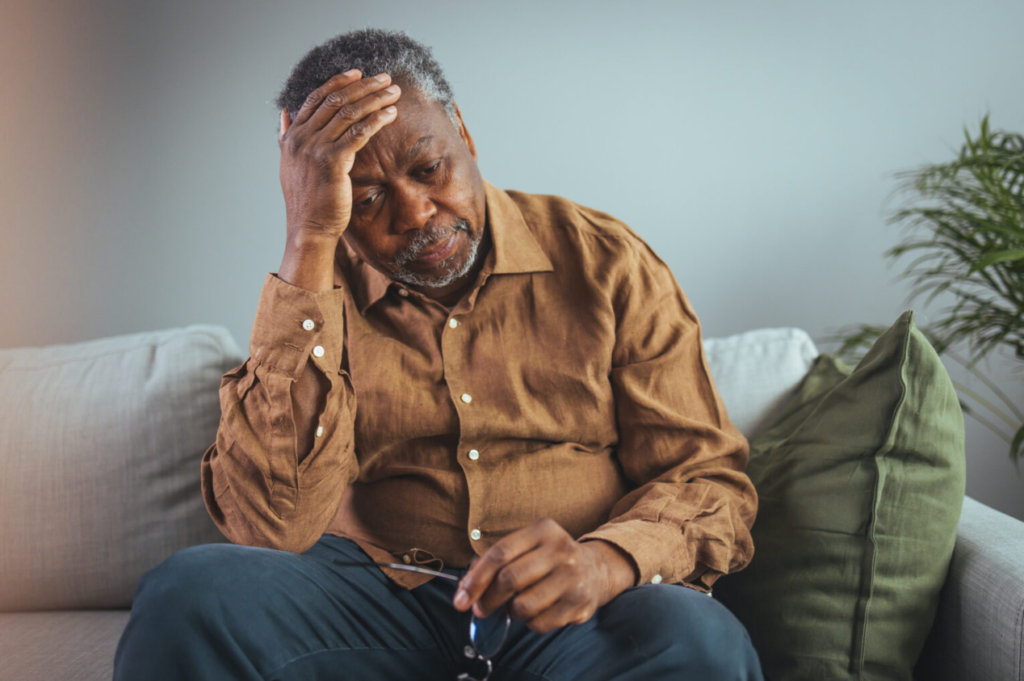Low energy and chronic fatigue in men can stem from a variety of factors. Here are some of the most common causes:

- Diet
A poor diet or nutritional deficiencies can significantly impact energy levels. A balanced diet rich in vegetables, whole grains, and proteins can help boost energy, while insufficient calories or essential nutrients may lead to fatigue, particularly in active or older men. - Exercise Patterns
Both a lack of exercise and overexertion can drain energy. Regular physical activity helps maintain muscle strength and energy, while too little exercise can lead to fatigue, and excessive exercise can cause burnout. Finding a balance is key. - Low Testosterone
Testosterone is crucial for both physical and mental energy. As men age, their natural testosterone levels decline, leading to symptoms such as fatigue, depression, irritability, and decreased muscle mass. Low testosterone, or hypogonadism, is common in older men and can impact overall energy levels. - Sleep Apnea
Sleep apnea is a condition where breathing stops intermittently during sleep, leading to disrupted rest. It is more common in men, particularly those who are overweight. Symptoms include excessive daytime sleepiness, loud snoring, and difficulty concentrating. Untreated sleep apnea can be dangerous and should be addressed with a doctor. - Insomnia
Chronic sleep problems, including insomnia, are another significant cause of low energy. Insomnia can affect men of all ages and may stem from emotional, psychological, or physical issues. Poor sleep quality negatively impacts daytime energy and overall well-being. - Depression
Depression is often linked to low energy, particularly in men who may also experience irritability, anger, and withdrawal from social activities. Symptoms include lack of interest in daily activities, trouble sleeping, and difficulty concentrating. Addressing depression through therapy and support is essential for improving energy levels. - Anemia
Iron-deficiency anemia, commonly caused by insufficient iron intake or gastrointestinal bleeding, can lead to significant fatigue. While anemia affects both genders, men may experience it due to conditions like ulcers or gastritis. - Thyroid Disorders
Hypothyroidism, a condition where the thyroid doesn’t produce enough hormones, can lead to symptoms such as fatigue, brain fog, and cold intolerance. While more common in women, men can also develop thyroid issues that affect their energy. - Medical Conditions
Several medical conditions, such as diabetes, heart disease, and some medications, can lead to low energy. These conditions often have additional symptoms that contribute to fatigue, requiring medical attention and management.
Understanding the underlying causes of low energy in men is important for addressing and managing fatigue. If low energy persists, consulting a healthcare provider for a proper diagnosis and treatment is crucial.




